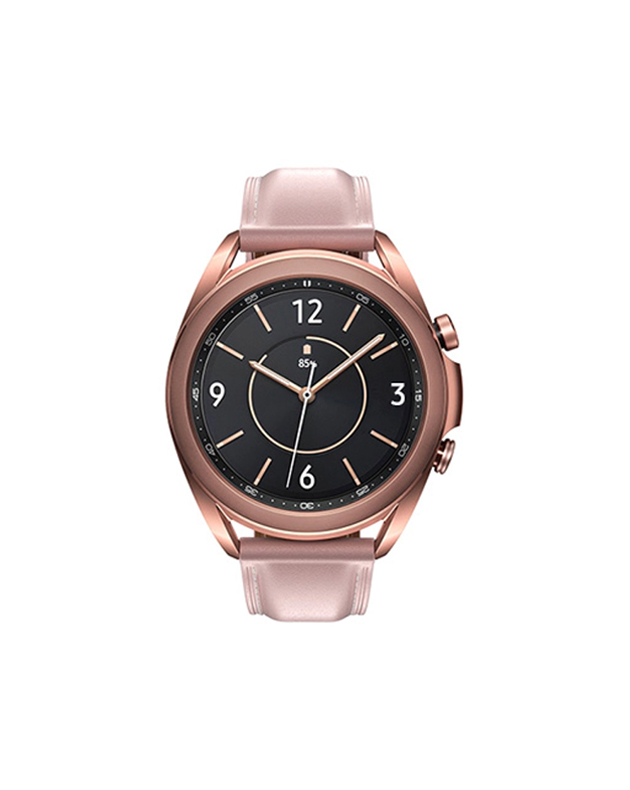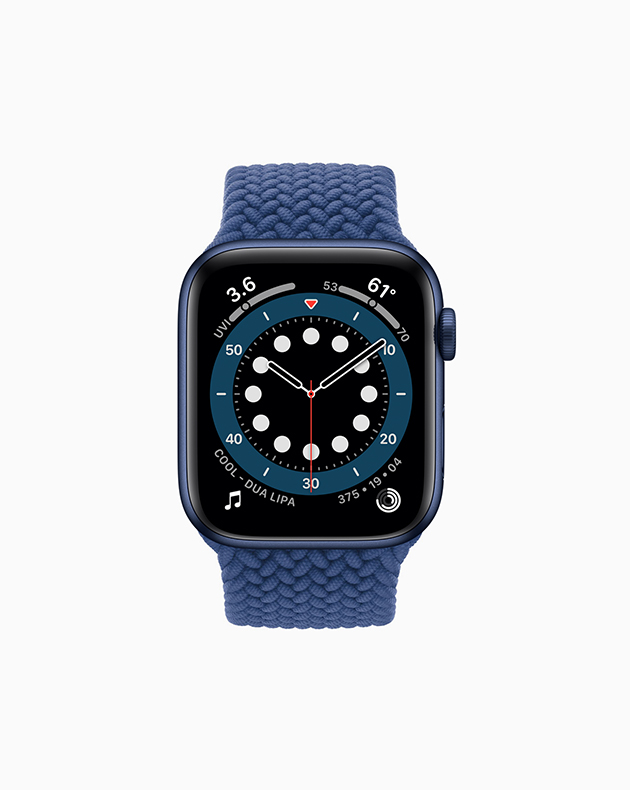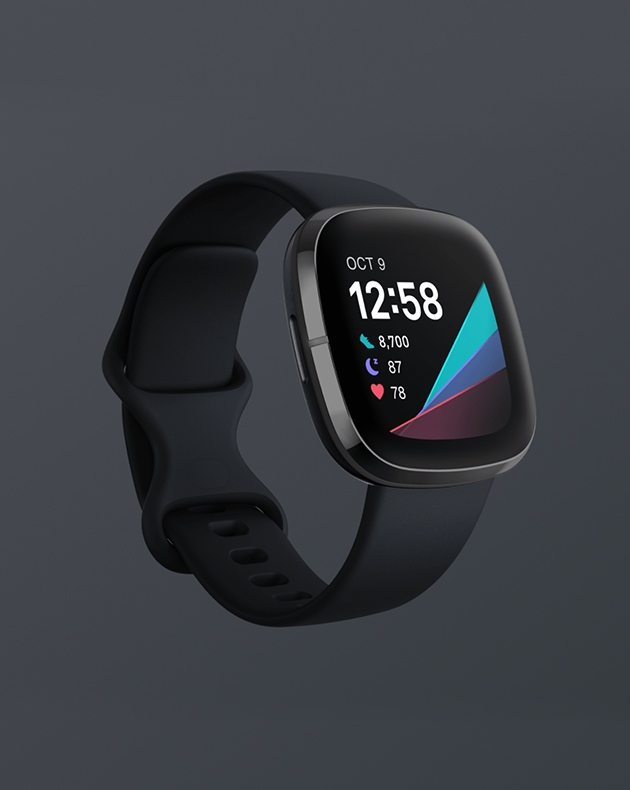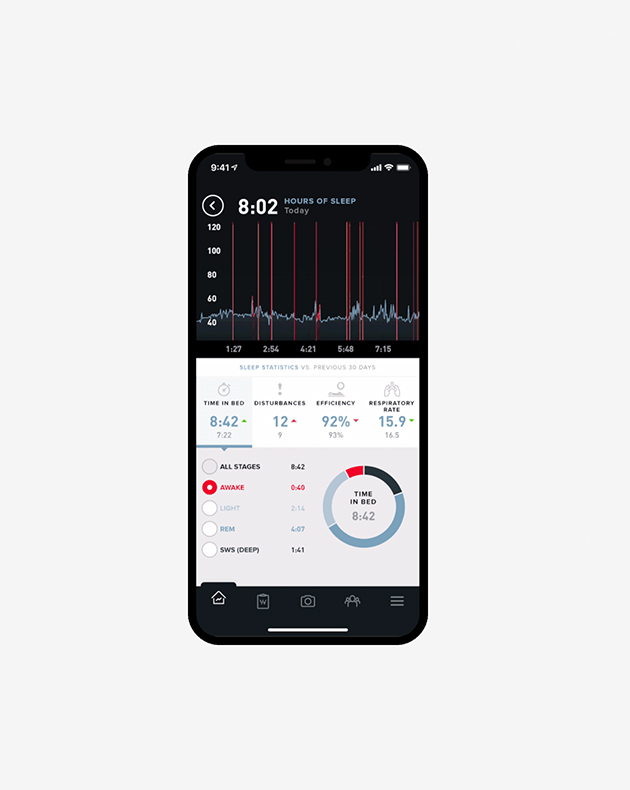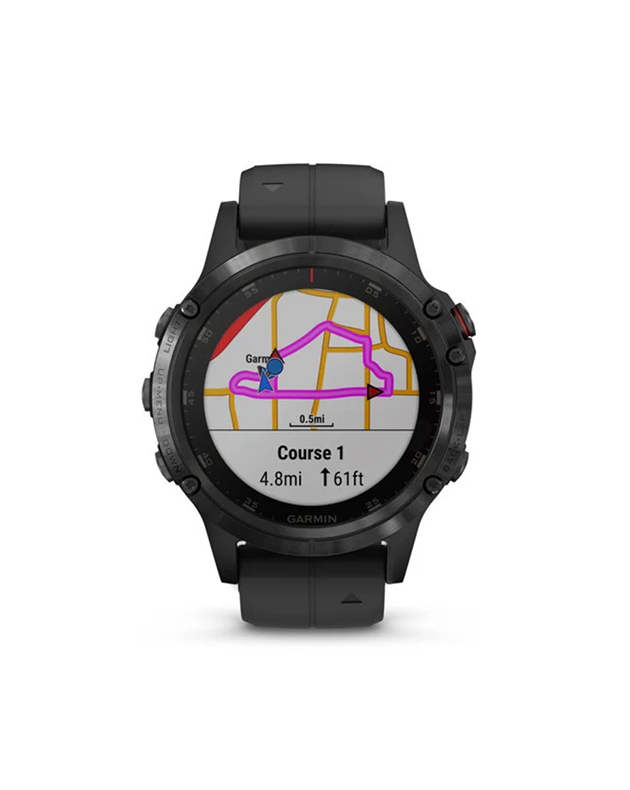Some leaders in the health-tech space—including Garmin, Whoop, Samsung Health, and Oura—have previously tracked stress levels using heart rate data. But the newest wearables, coming to market in late 2020 and through next year, track stress in new ways. The latest Apple Watch Series 6 ($429) uses a built-in blood oxygen monitor to sense quick and shallow breathing, which can then be used to detect anxiety or panic attacks. Fitbit’s forthcoming release, the Fitbit Sense ($330) will be the first wearable to track stress through electrodermal activity, or how well skin conducts electricity. (Sensors on the rim pick up on moisture triggered by stress.)

{{post.sponsorText}}
Launching in mid-December 2020, Cove, a device that wraps around the back of the head, tracks stress via heart rate, silently vibrating behind the ears to soothe the wearer and promote better sleep. Cove’s vibrational frequency was designed to stimulate the nerve endings of the skin, activating the brain’s posterior insular cortex to temper stress.
“Launching Cove now seems more relevant than ever,” says Francois Kress, the CEO and co-founder of Feelmore Labs, Cove’s parent company. “In these challenging times, many of us are facing stress, uncertainty, fear, and doubt. These stressors can impact overall well-being, including sleep. Cove was created as a simple tool to incorporate into everyday life [that can help].”
While Cove focuses on reducing stress in the moment, Garmin, Fitbit, and Samsung devices give wearers a stress “score” and specific stress management tips tailored to lower that score over time. For example, Fitbit’s lead research scientist, Conor Heneghan, says if the wearable picks up on sweat-triggered stress markers, wearers may be prompted to do an audio-guided meditation through the FitBit app as a way to help the body relax. Similarly, Samsung Health has partnered with the Calm meditation app to help smartphone and Galaxy Watch3 ($340) users lower their stress scores. Garmin devices—namely, the $700 Fenix 5 and $650 Forerunner 935—prompt users to do a breathwork exercise when they detect high stress levels.
Heneghan believes that in 2021, stress tracking will fit right alongside markers of a healthy lifestyle like exercise, nutrition, and sleep. “Defining health is about so much more than being ‘exercise fit,’” he says. “As technology has evolved, we’re able to offer users more metrics and insights about their overall health.”
So next time someone asks how you’re doing, you might want to glance at your wrist before answering. Your wearable might just know better than you do.
Shop Stress Trackers
1. Samsung Galaxy Watch3, $139
Shop now: Samsung Galaxy Watch3, $139
2. Apple Watch Series 6, $350
Shop now: AppleWatch Series6, $350
3. Fitbit Sense, $279
Shop now: Fitbit Sense, $279
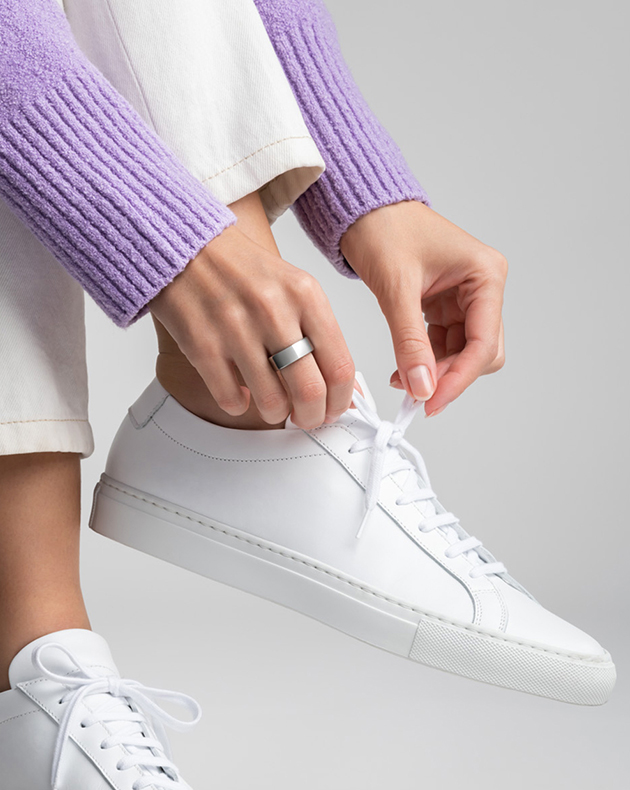
4. Oura Ring, $300
Shop now: Oura Ring, $300
5. Whoop, $30/month
Shop now: Whoop, $30/month
6. Garmin Fenix 5 - $270
Explore the rest of our 2021 Wellness Trends.
Oh hi! You look like someone who loves free workouts, discounts for cult-fave wellness brands, and exclusive Well+Good content. Sign up for Well+, our online community of wellness insiders, and unlock your rewards instantly.
Loading More Posts...
